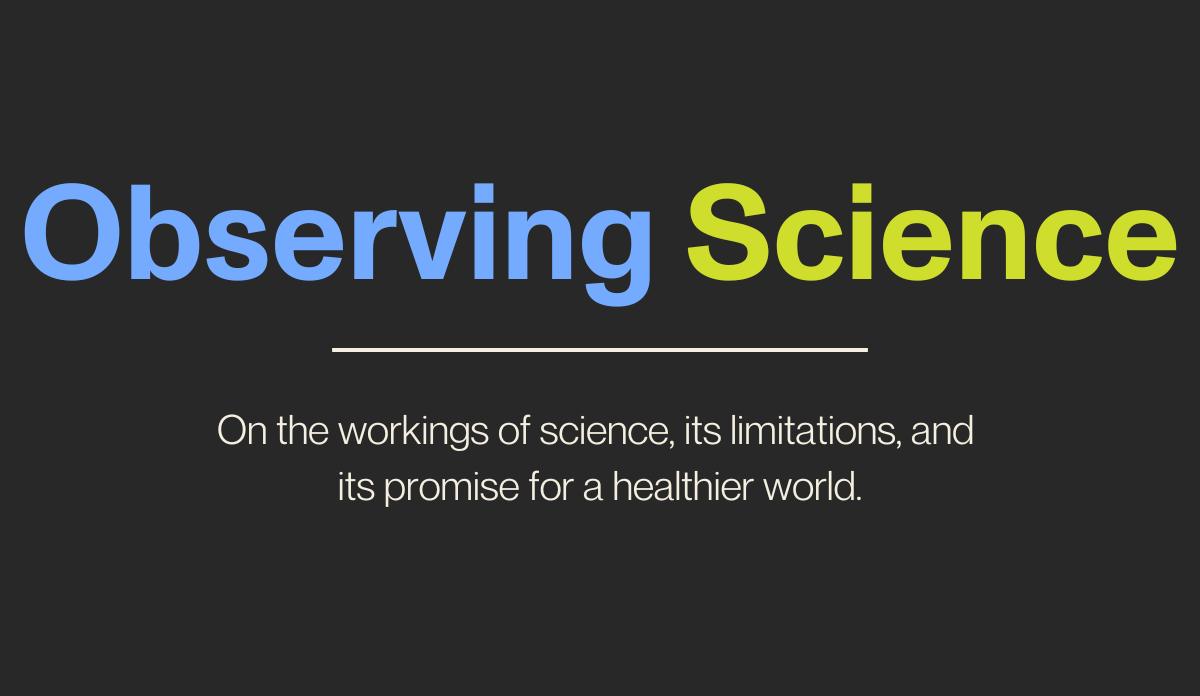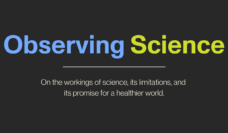The COVID-19 pandemic was, in many ways, a triumph of science. The world, through collaboration by scientists across countries, sequenced a novel coronavirus almost immediately. We then, building on a novel mRNA platform, developed several highly effective vaccines faster than any vaccines had ever been developed in human history. These vaccines went on to save millions of lives and allow the restoration of social and economic function faster than anyone might have imagined. This was all the work of science. And yet, there was much that the COVID-19 pandemic did to illuminate challenges in science, and it is helpful to contemplate what the pandemic taught us that we can carry forward in the coming decades.
One of the key learnings was embedded in the rallying cry that emerged during the pandemic, of “follow the science.” The phrase emerged in response to the feeling that, in the U.S., the president and other political actors were actively promoting quack therapies (e.g., ivermectin to treat COVID-19, bleach) and flirting with COVID-19-denialism. “Follow the science” then became a vote of confidence in evidence-based action, suggesting to the world that there was a scientific basis to what we might choose to do during the pandemic and that we should turn our back on spurious and ill-founded health suggestions. That is all to the good. But that slogan also embedded something deeper. Saying “follow the science” suggested that the science had an answer for what should be done, that there was a straight line from science to action. And that was, and is, misleading.
We find wisdom on this in the work of one of the pre-eminent population health scientists, Geoffrey Rose, who said: “[Our task] is not to tell people what they should do. That is a matter for societies and their individual members to decide. [Rather, our task is] to analyze the options, so that such important choices can be based on a clearer understanding of the issues.”
Rose’s point was that science provides a set of inputs that society can use to inform our actions. But that those inputs are just that—understandings that may be of use—and that there are many other considerations that should factor into decisions made by societies. Let us concretize this with two examples, one from the pandemic, one from our day-to-day lives.
“Follow the science” had its moment; it is time to let that slogan—and the narrow thinking about the role of science it suggests—disappear.
Science, during a pandemic, can offer important information about viral spread and risk of transmission, and science can offer guidance about how we may mitigate that transmission. Reducing person-to-person contact can reduce spread of a virus. A follow the science approach, therefore, points clearly to a do-all-we-can approach to limit person-to-person contact. But what of the other consequences of that approach? What do societies lose? How far behind will children fall in their educational achievement if we keep everyone at home? How many will die in hospitals alone? A narrow view on science obscures the complex tradeoffs the world must make to move forward societal goals on multiple dimensions.
Take decisions we make on energy consumption. Nuclear power is by far a more energy efficient, and in many ways safer, method of producing energy than is burning fossil fuels. Countries like France have embraced this, with 63% of French power being generated by nuclear energy. Germany, by contrast, has shunned nuclear energy, with only 6% of power being nuclear. Why? These two societies are valuing different inputs. France has leaned into energy efficiency, while Germany has a commitment to green values that are at odds with the very idea of nuclear energy.
Both of these examples illustrate the limitations of following the science. They do not in any way diminish the importance of science. Without science we will not know the mechanics of infectious disease transmission, nor will we know the best way to produce sufficient energy to allow nations to function. It is on citizens—through their governments principally—to weigh the inputs of science with other values, and to make decisions about how to solve particular problems. “Follow the science” had its moment; it is time to let that slogan—and the narrow thinking about the role of science it suggests—disappear.
Previous Issue: The Perils of Scientific Disengagement
Sign up for Observing Science
A weekly newsletter on science and creating a healthier world












